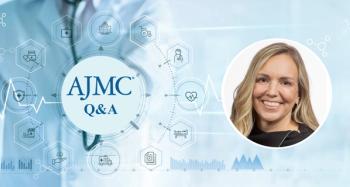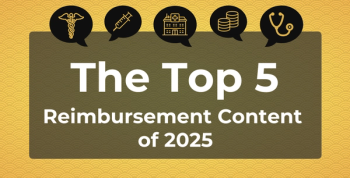
Without Teens in Cancer Trials, Cure Rates Won't Improve
Fictional teens with cancer may be suddenly popular in film and TV, but they are hard to find in the one place where they are most needed: in clinical trials to find drugs to save their lives. A story in the new issue of Evidence-Based Oncology, a publication of The American Journal of Managed Care, examines this problem.
PLAINSBORO, N.J. — Between “The Fault in Our Stars,” and “Red Band Society,” it seems that stories of teenagers with cancer are suddenly everywhere. But as Evidence-Based Oncology, a publication of The American Journal of Managed Care, outlines in its current issue, the teen cancer story that needs to be told is the one that might save more lives: why aren’t more teens and young adults with cancer enrolled in clinical trials?
Managing Editor Surabhi Dangi-Garimella, PhD, explores the sobering statistics: while 90% of children age 15 and younger enroll in clinical trials, the rate plummets to 10% for teenagers ages 15 to 19, and then falls to 1% to 2% for young adults ages 20 to 39, according to the National Comprehensive Care Network.
Clinical trials test new drugs or surgical procedures to treat cancer; for some patients, enrollment in a trial offers the best hope for survival. Over time, clinical trials lead to discoveries that improve cure rates for large numbers of patients. Because cancer affects younger patients differently than older patients, having too few results from this population harms future patients. For the full report,
These small number of teens and young adults in trials could be one reason for a lack of improvement in cure rates for these groups. Why is enrollment so low? There’s a host of reasons, including:
- age limits in hospitals, or age limits in clinical trial protocols
- institutional barriers that impede collaboration between pediatric and adult oncologists
- low referral rates of teen patients to pediatric cancer centers
- unique psychological needs of teen patients.
Much of the issue boils down to poor communication and age restrictions, according to physicians and regulators who spoke with Evidence-Based Oncology. If there’s good news, the dearth of teens and young adults in drug trials is gaining notice among researchers. “The place of care does make a difference,” said Eric Tai, MD, MS, medical officer with the Comprehensive Cancer Control Branch, Division of Cancer Prevention and Control at the CDC.
“Pediatric and adult cancer trials usually have age restrictions; so, a 20-year-old patient will be considered an adult and may lose out on participating in a pediatric trial, and an 18-year-old may not be able to participate in an adult trial,” he said. “What we need is more collaboration and dialogue between medical oncologists and pediatric oncologists.”
About the Journal
The American Journal of Managed Care, now in its 20th year of publication, is the leading peer-reviewed journal dedicated to issues in managed care. Other titles in the AJMC family of publications are The American Journal of Pharmacy Benefits, which provides pharmacy and formulary decision makers with information to improve the efficiency and health outcomes in managing pharmaceutical care. In December 2013, AJMC introduced The American Journal of Accountable Care, which publishes research and commentary devoted to understanding changes to the healthcare system due to the 2010 Affordable Care Act. AJMC’s news publications, the Evidence-Based series, bring together stakeholder views from payers, providers, policymakers and pharmaceutical leaders in the areas of oncology, diabetes management, and immunology and infectious disease. To order reprints of articles appearing in AJMC publications, please call (609) 716-7777, x 131.
CONTACT: Mary Caffrey (609) 716-7777 x 144
Newsletter
Stay ahead of policy, cost, and value—subscribe to AJMC for expert insights at the intersection of clinical care and health economics.








